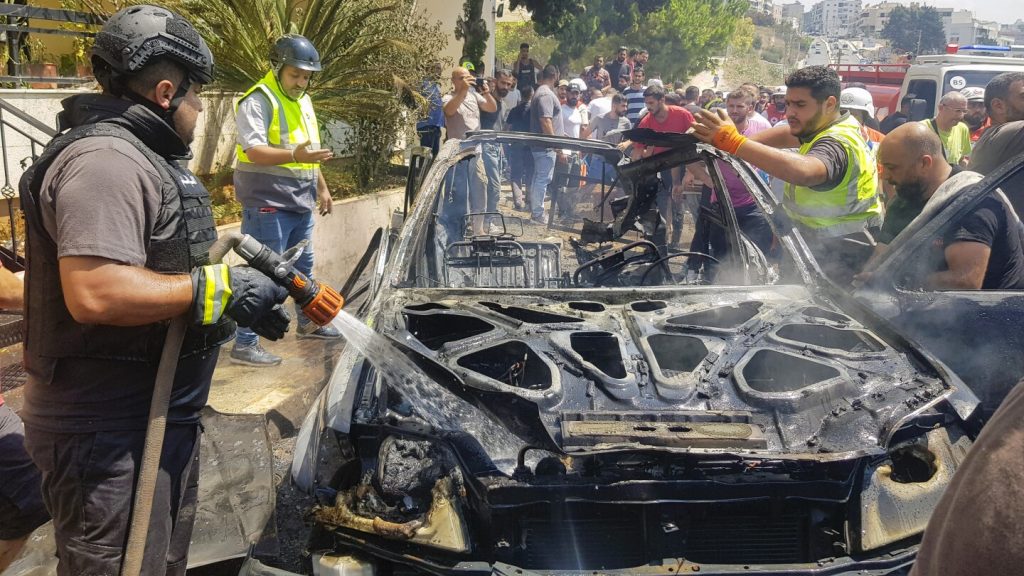After a short-lived calm following a heavy exchange of strikes between Israel and Hezbollah, fighting resumed Monday. Israeli strikes targeted the Lebanese border village of Tair Harfa and an area of Sidon, with a car being hit in the latter strike. Hezbollah retaliated by targeting military surveillance equipment in northern Israel with an exploding drone. This escalation follows Israel’s preemptive strikes on southern Lebanon, which it described as a response to a planned major attack by Hezbollah in retaliation for the killing of one of its top commanders in Beirut.
The chairman of the U.S. Joint Chiefs of Staff, Gen. CQ Brown, met with Israeli defense leaders to discuss the ongoing conflict. They reaffirmed the importance of the U.S.-Israeli strategic partnership and emphasized the need to de-escalate tensions to avoid a broader conflict. Discussions also included Israel’s defense needs, humanitarian support for Gaza, and regional security and stability. Meanwhile, an Israeli airstrike killed five Palestinians in the West Bank, adding to the violence and casualties in the region.
The United Nations has reported that Israel’s military evacuation orders in Gaza have forced hundreds of thousands of Palestinians to move into smaller areas, shrinking the humanitarian zone to about 11% of the entire Gaza Strip. The UNRWA, the main provider of aid in Gaza, is still providing health care and other assistance despite the challenges. The shrinking humanitarian zone has led to difficulties in delivering aid and services, with Polio reemerging in Gaza due to lack of access to essential resources.
Despite the intensifying conflict, negotiations for a Gaza ceasefire continue in Cairo, with a working-level group discussing technical aspects of a potential deal. The talks aim to address differences between Israel and Hamas, including the exchange of hostages and prisoners, and Israel’s demands to maintain a military presence in strategic corridors in Gaza. The U.S. delegation, led by Middle East adviser Brett McGurk, is working with both parties to find a resolution to the ongoing conflict.
The U.S. provided intelligence and surveillance support to Israel during the recent conflict with Hezbollah, but did not participate in the operations. Israel has extended housing grants for evacuees and hostages’ families as the war continues, with thousands of Israelis living in temporary housing due to the ongoing violence. The conflict has also hampered food aid deliveries in Gaza, with U.N. agencies struggling to provide enough food due to Israeli restrictions, ongoing fighting, and damaged infrastructure.
Iran’s foreign minister has vowed “definitive” retaliation against Israel for the assassination of a Hamas leader in Tehran, adding to the tensions in the region. Polio vaccines for over a million people have been delivered to Gaza to address the reemergence of the disease, but distribution challenges persist due to the ongoing conflict and humanitarian crisis. The situation in the region remains fragile, with ongoing violence and instability affecting the lives of millions of people.


